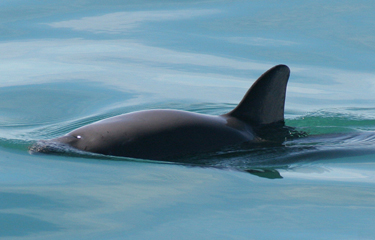Three conservation groups have sued the U.S. Department of the Interior to force it into issuing sanctions against Mexico for its continued allowance of illegal totoaba fishing, which is threatens the critically endangered vaquita porpoise with extinction.
The Natural Resources Defense Council, the Center for Biological Diversity, and the Animal Welfare Institute filed suit on Tuesday, 14 December arguing an “unreasonable delay” in the U.S. government’s response to a 2014 petition to sanction Mexico under the Administrative Procedure Act. According to the petition, Mexico’s failure to take effective enforcement action against the totoaba trade undermines the Convention on International Trade in Endangered Species of Wild Fauna and Flora (CITES).
“Despite Mexico’s enforcement promises, we’ve watched the vaquita population plummet over the past decade from 200, to 100, to 60, and now to only around 10,” Center for Biological Diversity International Program Director Sarah Uhlemann said. “We’ve tried advocacy, we’ve tried diplomacy, but the vaquita is out of time. We need economic pressure to force Mexico to finally wake up and stop this little porpoise’s extinction.”
The lawsuit, filed in the United States Court of International Trade, demands the U.S. Interior Department certify Mexico under a U.S. law called the Pelly Amendment, which would allow the administration of U.S. President Joe Biden to embargo the importation of wildlife products from Mexico, including shrimp and fish. The value of all seafood sent from Mexico to the U.S. in 2021 approached USD 600 million (EUR 563 million).
The CITES Secretariat has called for sanctions against Mexico, the groups said, and the U.S. has previously expanded vaquita-related Mexican seafood bans for shrimp and other seafood caught in the vaquita’s habitat.
“Despite international outcry, Mexico has failed for decades to stop illegal fishing in the Upper Gulf of California,” Animal Welfare Institute Wildlife Biologist DJ Schubert said. “It is disappointing that the United States has failed to hold Mexico accountable for its dismal record of enforcement when the vaquita is on the precipice of extinction.”
According to the conservation groups, Mexico has failed to enforce a ban instituted in 2017 on most gillnet fishing in the northern Gulf of California. Illegal totoaba fishing is an ongoing concern in the Gulf of California, the groups said. Illegal fishing in off-limits areas was recorded by the International Union for Conservation of Nature on 120 out of 147 days between October 2021 and May 2022, with 29 vessels spotted actively fishing in areas where they are banned on 1 December alone. Nets used in totoaba fishing are the top killer of vaquita, as they become entangled and drown. Scientists estimate there are just 10 vaquita remaining on Earth.
“While the United States has delayed for eight years, the vaquita population has plummeted from 97 to 10,” Natural Resources Defense Council Senior Attorney Zak Smith said. “It’s time for the United States to use this ultimate tool – broad sanctions – to compel Mexico to save the vaquita.”
Photo courtesy of Paula Olson/NOAA







